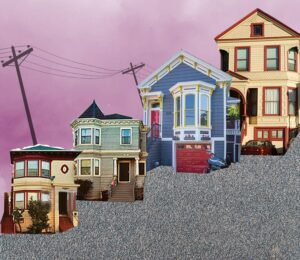One of my favorite hobbies is to play video games. I play games of all genres — from role-playing games to the competitive first-person shooter games — it’s just so much fun for me.
Over the break, my cousin let me borrow a game titled Bayonetta. It was a game I had only heard about but never actually seen the gameplay. Within the first few hours of playing it, I was surprised at what I saw. The main protagonist, her name being Bayonetta, seemed to be reduced to eye-candy with a tough yet nonchalant personality.
Her clothing is tight against her skin, accentuating all her curves; her legs designed to be almost twice as long as her torso plus heels; her normal walking action is the “stripper walk.” The game even has some shots or slows down at some of the cinematic scenes to show the player the “good parts” of Bayonetta. Oh and did I mention her special ability involves her stripping to the point where she is barely covered?
This game is a good example of how video games have yet to portray women as they really are, and not dehumanize them down to just their body. Women have so much more to project in terms of character, especially in a video game like Bayonetta where the protagonist is a female character out to save the world — why take that away and make the woman just eye-candy? It seems like as long as they have great breast design, look revealing or are characterized as helpless and waiting for their prince to arrive, they are a great video game character…not really.
Another thing I have noticed about video games is that as long as the woman character looks good and the developers give her a weapon to use, she is all good — She can do tricks and flips; take on an army with just a tank top and short-short.
Less dressed equals a much stronger woman than one that is armored. Not to say those designed with armor are weak, but I haven’t seen many games that show a heavily armor women with the same kind of persona or “attractiveness” to the player as the ones without. It’s still about the body image and to me; it’s not a very healthy way to portray what a strong woman is.
Don’t get me wrong though, it’s not just women, men have it equally as bad! Men are seen in video games as having extremely huge muscles, roaring the field, guns blazing — an overly aggressive personality. Most of them are also characterized as being sex-crazy. Is there anything more to them? I have seen more character depth for male characters than for women, these stereotypes are repeated over and over again in video games.
But can people who play video game be so concerned or truly notice what’s going on within the design of these video games? The story, the gameplay, the action all seem to drown out the underlying message of how these women are being portrayed. To most people, it would be something that simply passes over their head as they continue on playing the game, enjoying the button-smashing excitement and tense boss battles. Players use video games as a source of enjoyment and entertainment — they don’t seem to notice what’s going on and how it affects them or the people around them. Not to say video games give a message of misogyny or the sorts, but that they have a long way of really investing more character depth rather than designing or giving the characters “stereotypical” concepts.
I can’t help but point out some of these crazy sexist things in video games while I play video games. To me it’s sometimes really obvious where developers were going with their design, but to others, it’s just part of the game. But I guess it’s something that I may have to deal with, just like movies.
[How women are portrayed in video games is one thing, but how they are treated within the gaming community — meaning the actual human being playing the game — is a whole different opinion piece, almost as bad as how they are being portrayed!]
Bianca Medina is an avid gamer, who loves just love to play video games of all kind; majoring in Business Economics and wanting to be a Community Manager or be in PR for a video game company.


